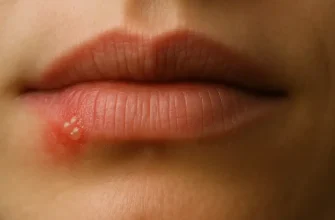Dry skin is a frequent issue where the skin becomes dry, rough, scaly, and itchy due to a lack of moisture. This condition can impact individuals of all ages but is more prevalent among older adults.
List of Causes
Dry skin can be caused by various factors. Some common causes include:
- Environmental factors: Being in cold temperatures, low humidity, and dry air can cause the skin to lose moisture and become dry.
- Excessive bathing or washing: Regularly washing with hot water and using strong soaps or cleansers can remove the body’s natural oils, leading to dry skin.
- Age: As individuals get older, their skin generates fewer oils naturally, resulting in older adults being more susceptible to dry skin.
- Certain medications: Some medications, such as diuretics, antihistamines, and retinoids, can have a drying effect on the skin.
- Underlying medical conditions: Certain medical conditions like eczema, psoriasis, hypothyroidism, and diabetes can cause or worsen dry skin.
- Genetics: Certain people may have a genetic tendency for dry skin, which can increase their likelihood of experiencing it.
- Personal habits: Smoking, alcohol consumption, and a poor diet lacking essential nutrients can contribute to dry skin.
List of Risk Factors
There are several risk factors that can increase the likelihood of experiencing dry skin. These factors include:
- Age: As individuals age, their skin produces less natural oils, making them more prone to dryness.
- Environmental conditions: Exposure to cold weather, low humidity, and dry air can deplete the moisture levels in the skin, leading to dryness.
- Excessive bathing or washing: Frequent washing with hot water and using harsh soaps or cleansers can strip away the natural oils from the skin, resulting in dryness.
- Certain medications: Some medications, such as diuretics, antihistamines, and retinoids, can have a drying effect on the skin.
- Underlying medical conditions: Certain medical conditions like eczema, psoriasis, hypothyroidism, and diabetes can cause or worsen dry skin.
- Family history: Some individuals may have a genetic predisposition to dry skin, making them more susceptible to its development.
Understanding these risk factors can help individuals take necessary preventive measures and make appropriate changes in their lifestyle to maintain healthy, hydrated skin.
Is it Dangerous?
Dry skin itself is not typically considered dangerous, but it can lead to discomfort and other issues if left untreated. The dryness can cause itching, redness, and flaking of the skin. Scratching the dry skin can also lead to breaks in the skin, increasing the risk of infection. Additionally, dry skin can make individuals more susceptible to skin conditions such as eczema and dermatitis.
In some cases, severe dry skin may indicate an underlying medical condition, such as hypothyroidism or diabetes. It is important to consult a healthcare professional if the dryness persists or is accompanied by other symptoms. They can help determine the underlying cause and provide appropriate treatment.
List of Treatment Options
When it comes to treating dry skin, there are several options available to help restore moisture and improve the overall health of your skin. Here are some treatment options to consider:
- Moisturizers: Using a rich, hydrating moisturizer can help replenish moisture in the skin. Look for products that contain ingredients like hyaluronic acid, glycerin, or ceramides.
- Topical corticosteroids: If you have severe or persistent dryness with inflammation, your doctor may prescribe a topical corticosteroid cream or ointment to reduce inflammation and relieve itching.
- Prescription creams: In some cases, your doctor may recommend prescription creams or ointments, such as calcineurin inhibitors or retinoids, to help improve the skin’s moisture levels and reduce inflammation.
- Humidifiers: Using a humidifier in your home or office can help add moisture to the air, which can benefit dry skin.
- Avoid hot showers and harsh soaps: Hot water and harsh soaps can strip the skin of its natural oils, so it’s best to use lukewarm water and gentle cleansers when bathing or showering.
Remember, it’s important to consult with a healthcare professional for a proper diagnosis and personalized treatment plan for your dry skin. They can help determine the underlying cause and recommend appropriate treatment options.
Medications to use
When it comes to treating dry skin, there are several medications that can be used to help alleviate symptoms and restore moisture to the skin. Here are a few options to consider:
- Topical corticosteroids: These creams or ointments contain steroids that can help reduce inflammation and relieve itching associated with dry skin. They are typically used for short periods of time to avoid side effects.
- Prescription creams: In some cases, your doctor may prescribe creams or ointments that contain ingredients like calcineurin inhibitors or retinoids. These prescription-strength treatments can help improve the skin’s moisture levels and reduce inflammation.
- Antihistamines: If your dry skin is accompanied by itching, your doctor may recommend taking antihistamines to help alleviate the itch and promote healing.
It is crucial to consult with a healthcare professional before starting any medications to ensure proper usage and avoid any potential side effects.
Natural remedies
Natural remedies can be a gentle and effective way to treat dry skin. Here are a few options to consider:
- Coconut oil: With its moisturizing and anti-inflammatory properties, coconut oil can help nourish and hydrate dry skin. Apply a thin layer to the affected areas and massage gently.
- Oatmeal baths: Soaking in an oatmeal bath can provide relief from dry and itchy skin. Add finely ground oats to warm water and soak for about 15-20 minutes. Pat dry and moisturize afterward.
- Honey: Known for its humectant properties, honey can help lock in moisture and soothe dry skin. Apply a thin layer of raw honey to the affected areas and leave it on for about 15-20 minutes before rinsing off.
- Aloe vera gel: Aloe vera has cooling and moisturizing properties that can alleviate dryness and inflammation. Apply pure aloe vera gel to the affected areas and leave it on until absorbed.
Prevention and Best Tips to Keep Your Skin Healthy
To maintain healthy skin and prevent dryness, it’s important to follow a few simple but effective steps. Here are some tips to keep your skin moisturized and glowing:
- Hydrate: Drink plenty of water throughout the day to keep your skin hydrated from within.
- Use a gentle cleanser: Avoid harsh soaps and cleansers that can strip your skin of its natural oils. Opt for a mild cleanser that doesn’t dry out your skin.
- Moisturize regularly: Apply a moisturizer that is suited for your skin type. Look for ingredients like hyaluronic acid or glycerin, which help lock in moisture.
- Protect from the sun: Use sunscreen with a high SPF to protect your skin from harmful UV rays. Sunburn can damage and dehydrate your skin.
- Avoid long, hot showers: Hot water can strip your skin of its natural oils, leading to dryness. Opt for shorter showers with lukewarm water instead.
- Humidify your surroundings: Use a humidifier to add moisture to the air, especially during dry winter months or in air-conditioned environments.
By incorporating these simple tips into your daily routine, you can help prevent dry skin and keep your skin healthy and glowing.









